It’s a huge broad question, isn’t it? How can I stay safe while I am travelling. It’s a question I get asked by my tour clients, friends and see so many times ask in random Facebook groups that I thought I’d write a definitive blog about the subject. This information has been gathered from my time as a tour leader, from my own personal experiences travelling to 83 countries, mainly through trial and error and sometimes on the advice of others.
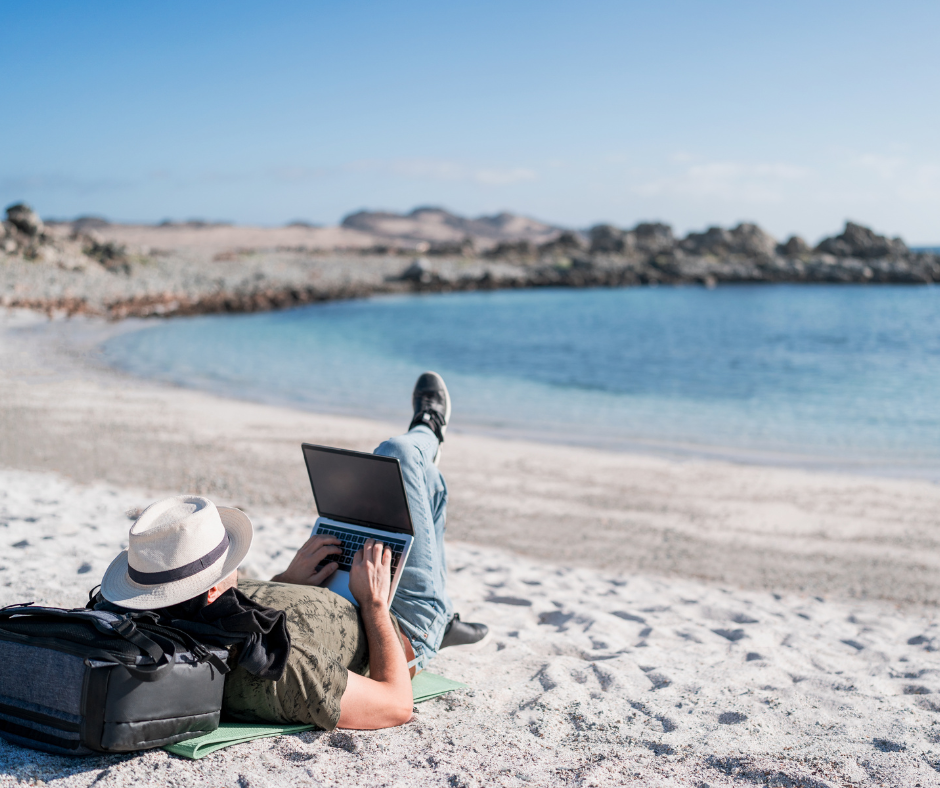
Be careful whose advice you follow
This is a shout out to people who love to ask for advice in Facebook groups. Firstly, there’s nothing wrong with asking for advice in a Facebook group in regard to travel safety. However, you need to be aware that your question will generally generate a wealth of different responses, some of which are contradictory. So, who do you believe? My most recent foray into giving advice on Facebook was a lady in one of my solo women’s travel groups who asked, how she should dress in Turkey. The responses varied from “you should completely cover yourself to avoid causing offense” to “it’s ok to walk down the street in a tank top and mini skirt in Istanbul because Turkey is secular.” As someone who previously lived in Turkey and was a tour leader there it was very easy for me to tell that the people telling the poster to completely cover up had never been to Turkey in their lives, because Turkey is, in fact a secular country.
So how do you avoid this? Instead of asking a general question like “What should I wear in Istanbul?” a question that is targeted towards gaining insight from people who have travelled to the destination is likely to generate a more appropriate response. For example, “seeking advice on how I should dress in Istanbul from ladies who have spent a considerable amount of time in this destination.” It’s likely that you will still get some know-it-all’s who have never been to Istanbul, but you’ll find that the majority of comments will be from people who have experience in this area, and you can form a general consensus. Another way around this is to flat out reply to commentors “when were you in Istanbul and how long were you there?” You’ll soon find out who has and hasn’t been and therefore who is and isn’t in the most appropriate position to be giving travel safety advice on the destination.
It goes almost with out saying the the best advice always comes from someone who has been. So ask your friends, most people are only too happy to talk about their travel experiences. I know I am.
Confidence is key
This one might be tough for all you introverts out there, but for me as a complete extrovert this one comes naturally to me. It actually took a while for me to even realise that this is one of the reasons, I’ve had so much success and never had a lot of trouble with travel safety. Writing this section, I recognise that not everyone has the confidence I do, so here are some simple tips to appear outwardly confident even though you might be uncomfortable or shitting yourself on the inside.
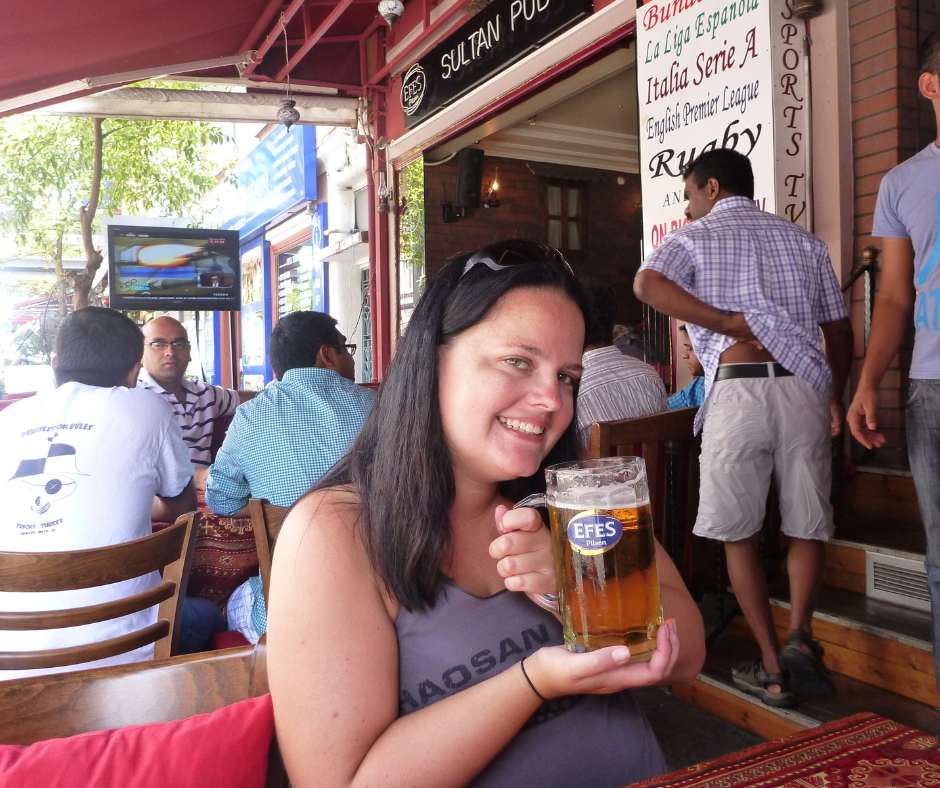
- Do some research beforehand, it’s much easier to look confident if you’re not lost, have some idea about the local customs and know a few words in the local language
- Body language – try not to look at your feet. Keep your chin level with the pavement. Make eye contact with people. Stride when you walk and walk with purpose, don’t trudge.
- Be assertive. Being confident doesn’t translate to being aggressive. Know what you want and calmly ask for it.
- Don’t be afraid to say ‘No’. This is especially true in places like Egypt, where the combination of looking lost and not being able to say no can land you in the shop of an aggressive carpet, papyrus or perfume seller under the guise of a person on the street asking you to come into said shop.
- Never admit this is your first visit. You’ve been here six times! You know how things work. This makes you less of a target for shady people looking to take advantage of unsuspecting tourists. (Point 1 will help you sell this)

If in doubt watch the movie Catch me if you can, starring Tom Hanks and Leonardo DiCaprio. “You know why the Yankees always win? Because the other teams can’t stop staring at those damn pinstripes.” It’s a great “how to” for how to act confident and where confidence can get you. (I am in no way suggesting you commit fraud or pretend to be an airline pilot)
Try not to look like a stupid tourist
Ok, there are some places where you can’t avoid looking like you’re a visitor. Africa for example, no matter what I did, or how I dressed I had no hope of convincing people I was actually a local because of the difference in my appearance from the local people. However, that is not to say that I looked like a quote ‘stupid tourist’.
The ‘stupid tourist’ can be spotted carrying a large camera around their neck, flashing money around, not dressed according to the local customs, accepting help from obvious hasslers, conspicuously holding a large map, looking completely lost, having a gobsmacked look on their face… you get the picture.
- Put your camera away when not using it
- Get a local SIM card if possible so you can use Google Maps, that way you just look like someone on their phone (you could be looking at anything)
- Don’t flash valuables around
- Try not to look lost (even if you are) walk with purpose even if you don’t know where you’re going
- When in Rome – take note of how local people are dressed and try to dress in a similar way. This doesn’t just go for places with religious sensitivities – I can remember walking around in Paris in April on a hot day wearing shorts. I was judged harshly by the local women, who DO NOT wear shorts in cosmopolitan Paris. This obviously made me look like a tourist because I was the only person wearing shorts.


Sometimes it’s ok (and fun) to be a stupid tourist. If everyone around you is a stupid tourist because you’re basically in tourist mecca, like Bali, Sharm el Sheikh, Phuket it’s probably ok – but still keep your wits about you.

Plan for disaster
No one wants to hear this, I know, but at some point, somewhere, something is going to go horribly wrong no matter what precautions you take. There are, however, steps you can take to minimise the impact of unfortunate events.
- Keep a copy of the photo page of your passport, this will be very helpful at the embassy should you lose or have your passport stolen
- Don’t put all your eggs in one basket. I usually keep one of my credit cards in my suitcase and some cash rolled up in a chewing gum bottle. Avoid these ‘hold all’ type travel wallets. While they may seem like a good idea, they aren’t so much. Ok I’m being subtle here THEY ARE A TERRIBLE IDEA! If you lose it or it gets stolen, you lose EVERYTHING and are completely screwed.
- Write down the phone numbers of anyone you might call for help in an emergency and keep them separate from your other travel documents. This will help you in the event your phone gets lost or stolen.
Reconnaissance
“Time spent in reconnaissance is seldom wasted” my absolute favorite quote in regard to travel and travel safety.
Reconnaissance isn’t just doing some research beforehand. It’s allowing some time in the destination to get used to it and to get the lay of the land. One of the things I used to do as a tour leader in a new destination was go out for a wander and not take anything with me except the equivalent of about $10. This has two purposes, it allows you to wander around and assess the safety level of where you are without taking too much of a risk (that is, heaven forbid you get mugged, the criminal only gets $10). I also used to do this to allow myself to get scammed. Why would I do this, you say? Let me explain. Allowing myself to get scammed provided valuable real-world experience to the clients I would get on my tours, this allowed me to advise them on how to look out for these people and how to avoid the scam, while taking no risk myself. While I’m not suggesting you go out with the intention of being scammed, having only $10 on you lessens the chance that scammers will actually do any damage.
A real-world example: Went out into Beijing the first time using this method. Was approached in the Wang Fu Jing area by two university students looking to ‘practice their English’. They took me to a karaoke bar where we sang, and they had drinks. I had one Coke; I knew there was something shady afoot by this point. When I said my goodbyes, they presented me with a bill that was equal to about $1000 US dollars (the bar tender was also obviously in on it). Imagine their faces when I opened my empty wallet which contained the equivalent of $10 in Chinese Yuan and nothing else. They obviously couldn’t call the police because it was a scam, and they were criminals. I walked out laughing and advised the group I met two days later how they could avoid this scam.
While you are on this little initial ‘lay of the land walk’ as I like to call it you should also be making a mental note of any services you might need while you are here. Try to make it like a bingo game. ATM. Check. Pharmacy. Check. Convenience store. Check. Nearest restaurant to the hotel. Check. Toilet facilities along the way. Check. Currency exchange. Check.
Discretion is the better part of valour
Travel safety can also be about compromise. There are going to be situations where you are 100% in the right but are dealing with someone in a position of power who will be able to really put a crimp in your trip. These are some simple things you can do to ensure you aren’t impacted by people who have the power to ruin you.
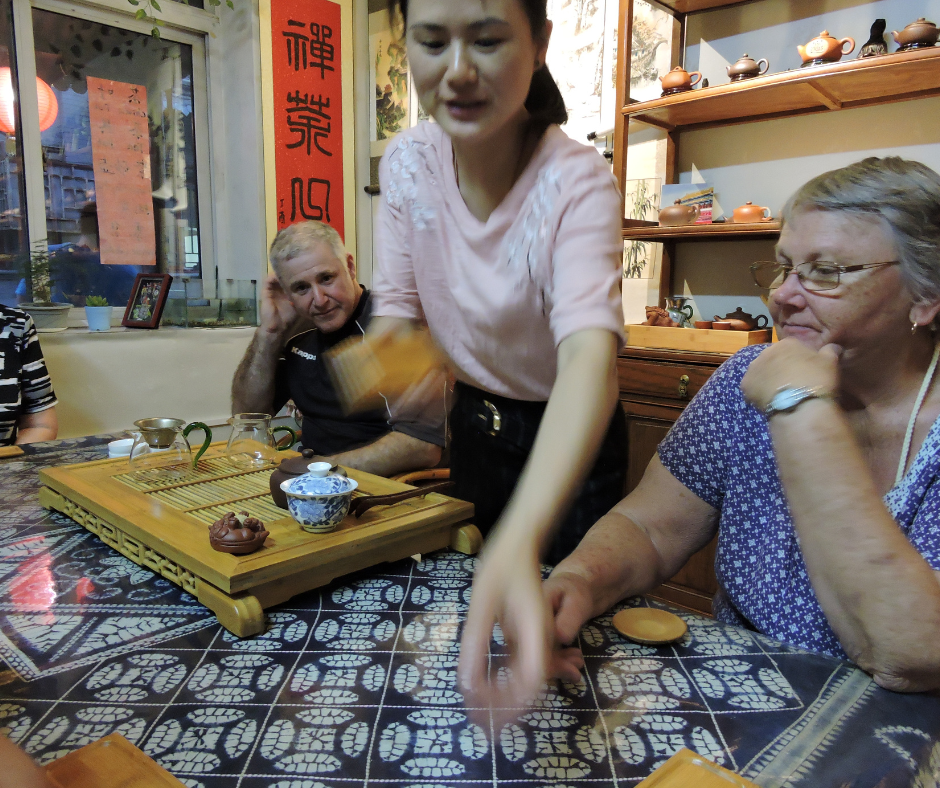
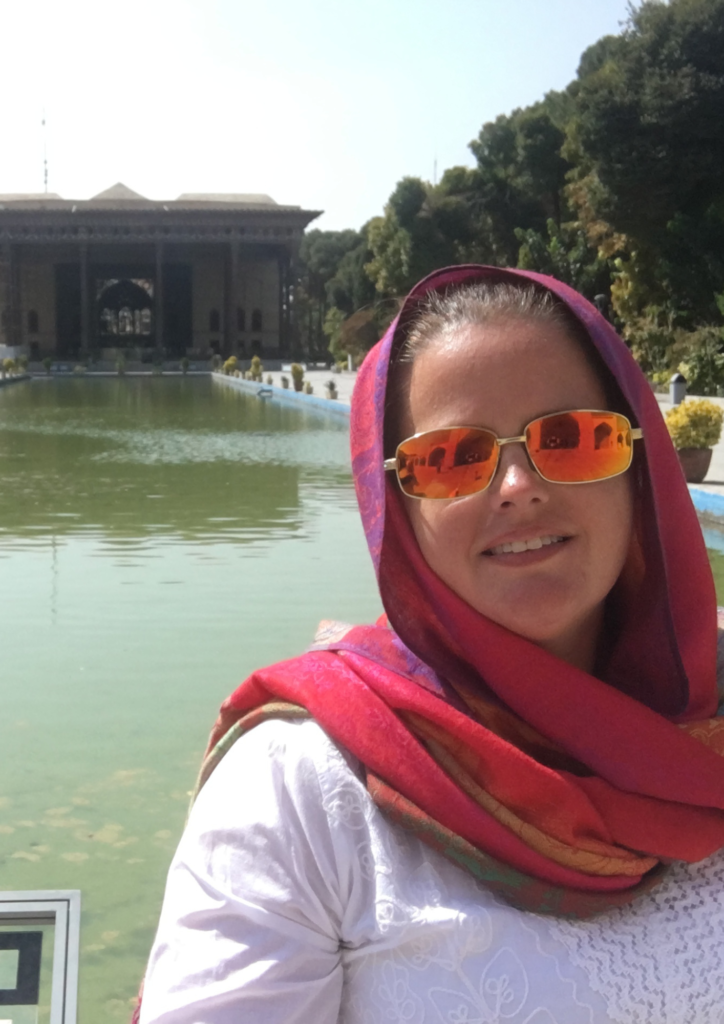
- Don’t pick fights with airport staff. Every frequent traveller should know this. I do recognise that in a post pandemic world, where things haven’t quite gone back to normal, this might be harder than usual. I know it’s frustrating when an airline loses your luggage or refuses to seat you next to your travelling companion, but don’t make a fuss. The last thing you need is for the check in agent to call airport security because you’re being perceived as a threat. You could be refused boarding or in a worst-case scenario end up on a no-fly list. In most cases the check in agent or airport staff has no control over what’s happening to you. My greatest piece of advice for travelling in general is ‘don’t be a dick’ – or a ‘Karen’ as this type of person is referred to these days.
- Make sure you’re up to date with local laws that affect you. Some places you visit might have local laws that you don’t agree with. For example, women must cover their heads by law in Iran and homosexuality is illegal. While I don’t agree with either I most certainly did cover my head while in Iran and didn’t get on my soapbox about how their laws against homosexuality are basically a human rights violation. My goal was to avoid ending up in an Iranian prison. Remember, just because something is legal in your country, doesn’t mean it’s legal where you’re going. A recent real-world example of this was the case of American WNBL player, Britney Griner who entered Russia with cannabis oil. Now while cannabis is legal in a lot of places in the US, it certainly isn’t legal in Russia, and she was sent to prison. Local laws can be things you might not even have thought of. Medication is a big one. In Uzbekistan anti-depressants and some pain killers like Endone, Oxycodone and morphine are illegal even with a prescription as the local authorities see these drugs as hallucinogens. You can be arrested for bringing these drugs into the country.
- Just hand it over. I once had a passenger who got into a fight with the officials as we were crossing the border from China into Kyrgyzstan over his shaving cream and also have a fight over the shaving cream before boarding a domestic train in China. He was so insistent on keeping his shaving cream he didn’t even consider that he was holding the group up and that he could be arrested – Chinese officials are not known for being easy going. For the love of God, if it’s something simple like a bottle of water or a can of shaving cream, just take the path of least resistance and hand it over.
Dealing with corruption & bribery
This is a tough one but unfortunately its necessary for me to write about it. Big picture there often isn’t much you can do in most of these instances, however you can make things easier on yourself.
- Don’t carry your passport around with you. Leave it at the hotel desk or in a safe at the hotel. Carry a copy of your passport with you for identification or your drivers licence from your home country. This applies in places like Russia and Eastern Europe where the first thing an official will ask for are ‘your papers’. ‘Your papers’ are often kept until you have handed over a significant amount of money to get them back. Often in these destinations, you will have to hand your passport over to the hotel for at least 24 hours so they can ‘register’ you, so advising a corrupt official (or any official) that to hotel still has your passport is completely believable and legitimate.
- See point above. Just hand it over. The officials in China, were probably not so concerned about the shaving cream and just wanted to be difficult.
- Keep your cool. The above kind of thing happens a lot, especially at land border crossings. The officials are bored, and you end up being their entertainment. My favorite real-world example was when I was crossing from Uzbekistan (yes Uzbekistan again) through to Turkmenistan with a group of 13 people. The first half of us got through pretty quickly, but then the officials changed shifts and the new official was obviously bored and not easy going like the last guy and insisted on completely searching the remaining peoples bags which added another hour to the already complicated task of crossing this border. Upon reaching the Turkmenistan side, the officials wanted me to fire up my laptop so they could check all the photos for pornography which is illegal in Turkmenistan. I fired it up and said, “have at it. I hope you’ve cleared your schedule for the week. Every photo I’ve ever taken from all my trips is on this laptop.” After about 10 minutes of looking at my photos, they realised that looking through 500 gigabytes worth of photos wasn’t feasible.
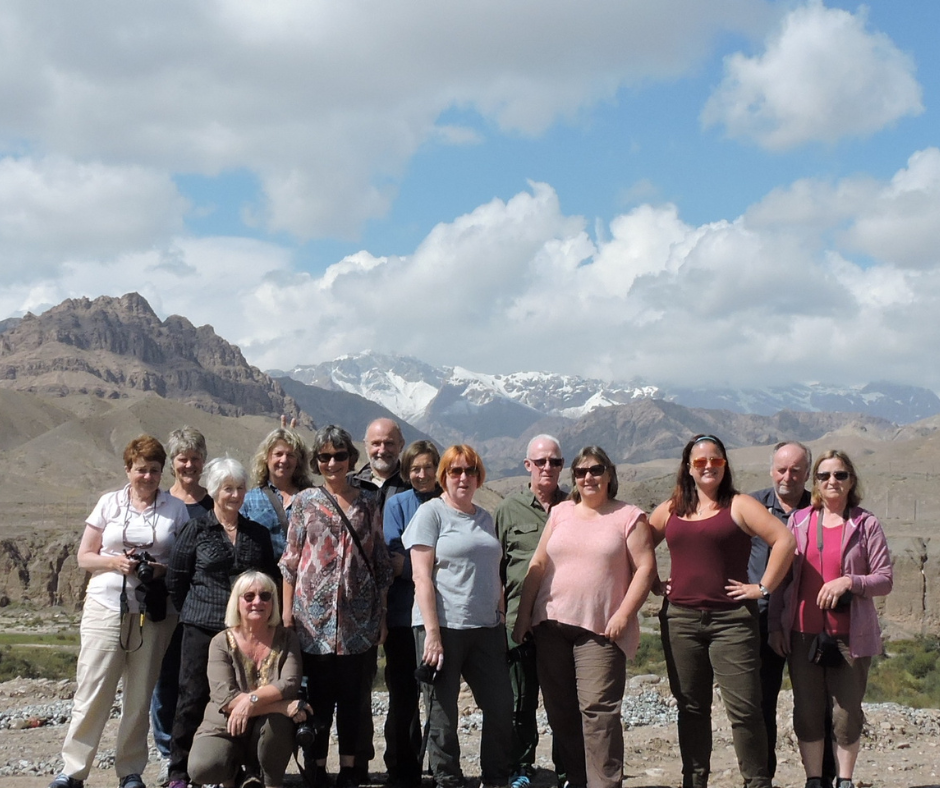
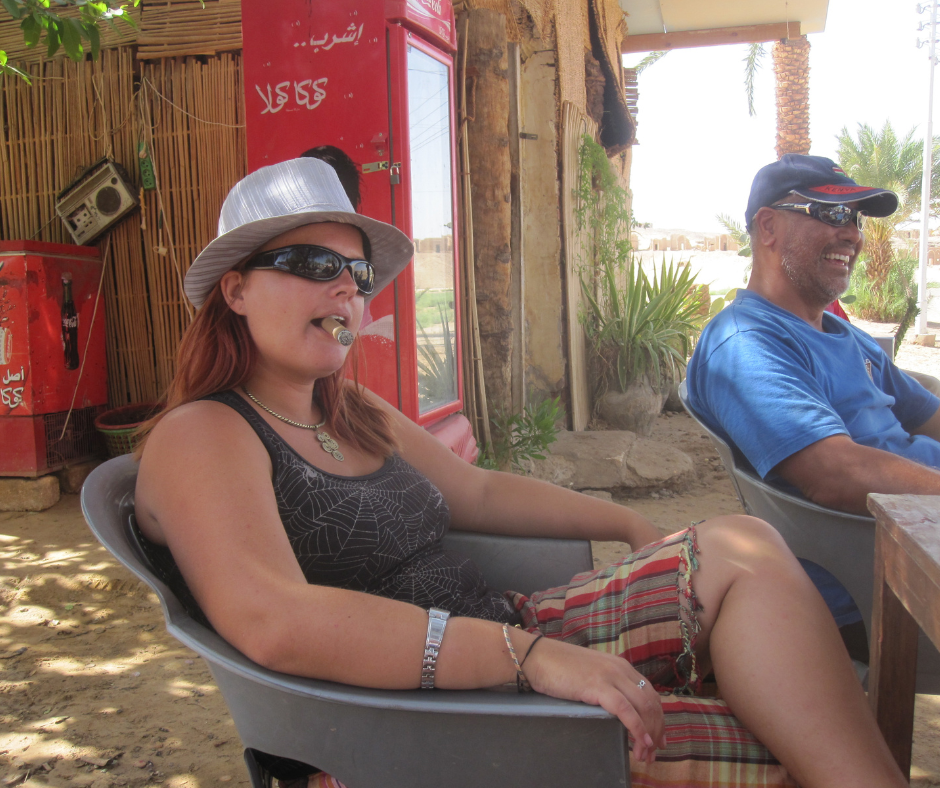
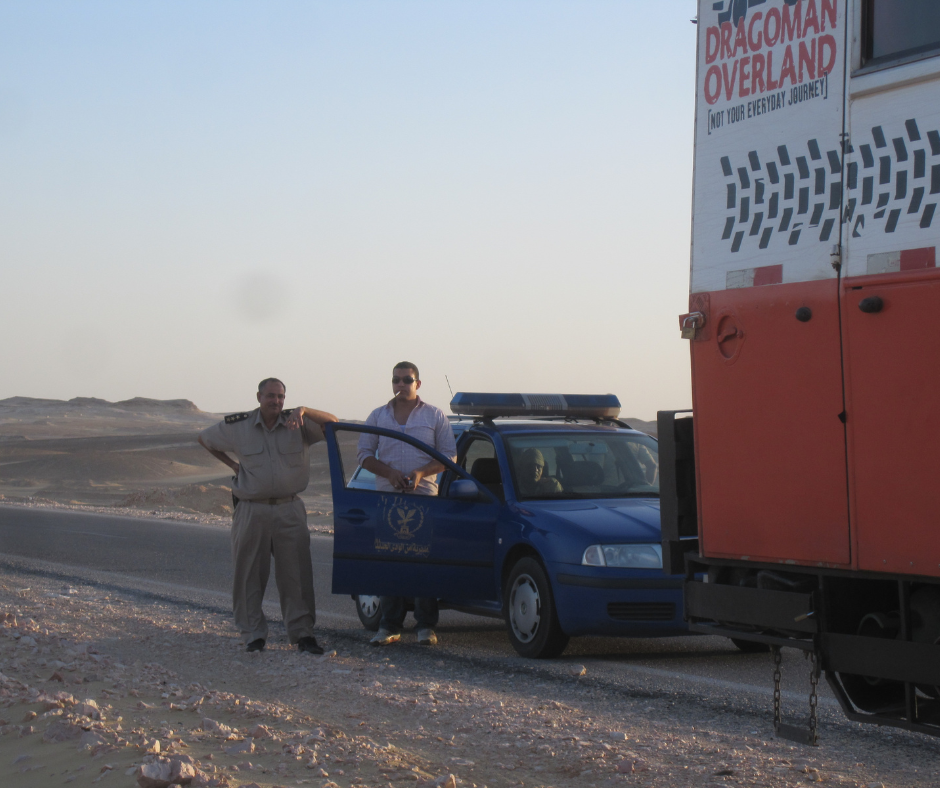
Example A) I was on a trip from Cape Town to Cairo on an overland truck and we were about to enter the Western Desert in Egypt to drive the Oasis Road. We were stopped by the police just outside Kharga Oasis who wanted to see our ‘papers’ and permission to drive to Cairo via this route. Having been to Egypt a few times I was familiar with this kind of thing and knew exactly what they wanted. We were promptly escorted to the nearest police station where the tour leaders (I was a passenger) were interrogated. Meanwhile, our truck was surrounded by tourist police with AK-47’s terrifying most of the passengers. I called a friend who is a local tour guide, who confirmed the conclusion I had already come to. “Come on Kristina,” he said, “you know what they want.” (Making things harder in these kinds of places is that people who want a bribe, often won’t ask directly and will assume you just know that’s what they want.)
I told the tour leaders what the police wanted as soon as they got back on the bus to explain the situation, however they wouldn’t have it as their tour company’s policy was to take a moral stand against bribery. I told them things were going to be very difficult here if they didn’t, but they decided against taking my advice and we were promptly escorted away from the oases and up the Nile and even through the Eastern Desert (even more dangerous than the Western Desert – another obvious sign they wanted a bribe). We had to camp in a football oval halfway because there were no suitable hotels and we all finally got to Cairo disappointed and annoyed that our trip had been disrupted in such a way.
Example B) I was tour leading in Zimbabwe on my own truck. Every hundred or so km there were police officers who stopped us to inspect the truck. We were accused of speeding constantly (seriously one guy showed us the speed gun with a reading of 130km per hour our truck couldn’t even go above 90km per hour!), they wanted one of the other tour leaders’ bikes which was strapped to the front of the truck, they said we had mechanical issues. Each time I handed the driver the equivalent of about $10 in local currency to hand over with our paperwork. The fact was if we didn’t bribe the police we’d never get to where we were going. On a 600km travel day, to be stopped 6 times and to argue with corrupt police for over an hour each time…well you get the idea. That company had no such moral stand on bribery in Africa. It’s just part of life. In fact, as a tour leader, I actually had a ‘bribery kitty’ for these occasions.
I know you might wish to take a moral stand on this, but I’ll pick example B every time.

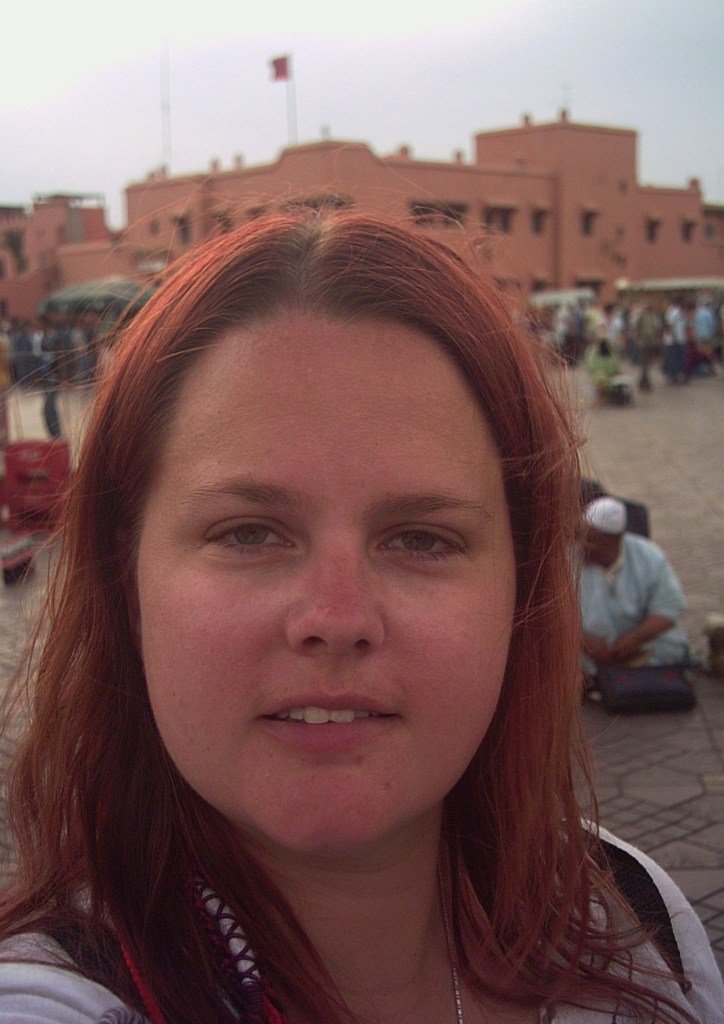
Backsheesh is a bit different. It’s kind of a combination of tip and bribe. So, it’s not strictly a bribe and is usually given after the fact. Backsheesh is often demanded for services you never asked for in the first place and can be quite a draining experience especially when travelling in places like Egypt and Morocco where the demand for backsheesh is almost constant. Backsheesh can be demanded for carrying your luggage, showing you something in a temple, helping you if you’re lost or sometimes even just talking to you. The best way to deal with it, is to be prepared for it. Keep your smaller notes in your pocket or in a change purse. Keep the large notes in your wallet. The minute the person sees larger notes they will want more ‘backsheesh’, this is especially true of Morocco, where the local people think tourists are dripping in Euros and will sometimes demand a very large amount of backsheesh (I had a small child demand 20 Euros because she showed me the way back to my riad!) as opposed to Egypt, where people are usually satisfied with a couple of Egyptian pounds.
To bribe, or not to bribe?
This is a mine field and sometimes you only get the hang of this after several visits to the country in question. You can mitigate the risk somewhat and sometimes you might want to make a decision on whether you want to go to a place where bribery (and corruption) are rampant at all. I’ve had a good long think about whether to even give advice on this at all. In end, it’s up to you, take my advice, or don’t.
- Again, time spent in reconnaissance is seldom wasted. A quick Google search will let you know if bribery is even a thing in the place/s you are visiting, if should also let you know at which point you are likely to be asked for a bribe or for which situations ‘backsheesh’ is appropriate.
- A bribe may not always be expected in the form of money. My Kyrgyzstan guide used to use cigarettes to bribe the border officials so he could drive into the no man’s land between China and Kyrgyzstan to pick up our groups to prevent us from having to walk 3.4km between the border posts through the mountains.
- If you think someone wants a bribe, you can ask in a roundabout way. “Is there anything I can do to speed up the process?” “Would you like me to ‘make a donation’ to the city police station’. Never ask directly if they want a bribe. NEVER.
- There are some places where you won’t know if this behaviour is expected and that’s ok. Knowing that someone wants a bribe without being directly told, takes experience in the destination and a certain kind of intuition. I’ve spent a lot of time in Egypt, and I know when someone wants a bribe. There is a certain kind of tone in their voice when something might be ‘negotiable’. I only know this from the large amount of experience I have travelling in this destination and dealing with the local people.
- Don’t ever offer a bribe if you’re not sure. You could end up in prison. I lived and worked in Russia. Bribery and corruption are rampant in the official ranks (not among the general population). I still would never offer a bribe to anyone (while in Egypt I wouldn’t hesitate) or even pay a bribe that was asked for (entrapment is also rampant). Some people are corrupt, some aren’t.
Taxi!
Staying safe while trying to use private transport like a taxi service can also be hard. My top tip is if the destination has Uber or their own version of Uber eg. most of Southeast Asia uses Grab and Indonesia also has Gojek, to make use of them. These companies track your ride, and you pay in advance meaning the driver can’t try to rip you off. Other tips I have are:
- If you are in a destination with no Uber and private drivers are out of your price range and you have no alternative but to use a taxi, make sure the driver turns the meter on. If there is no meter, make sure you agree on a price beforehand. If the meter is ‘not working’ it’s a sure sign that they won’t use the meter and plan to rip you off. Either find another driver or make sure you agree on a price before your journey commences.
- Stick with who you know. If you find an honest taxi driver, ask for their contact info and contact them directly. This also works with private drivers, which can be a really affordable way of getting around in some destinations, especially on long trips where you may not want to book a tour. Bali is a good example of this. I have a regular driver who I use, my family uses, my friends use and my clients use. He’s basically a family member. He helps me with everything and even checks on me during days I’m not using his services, and am on my own to make sure I am ok.
- Scooter! Scooter! In some destinations (South East Asia and especially Bali) scooter taxi’s are a big thing. You can order these on the local Uber app or Grab etc, however they can be very aggressive on the street. Two warnings here. Check your travel insurance. Most companies won’t cover it unless you have scooter cover and even then only if you’re wearing a helmet which often aren’t compulsory in the destination. The other warning is for ladies walking around where these scooter taxis just saturate the streets. Carry your handbag on the shoulder furthest from the street. There have been a lot of instances where scooter drivers (not just scooter taxis) drive past and snatch your bag.
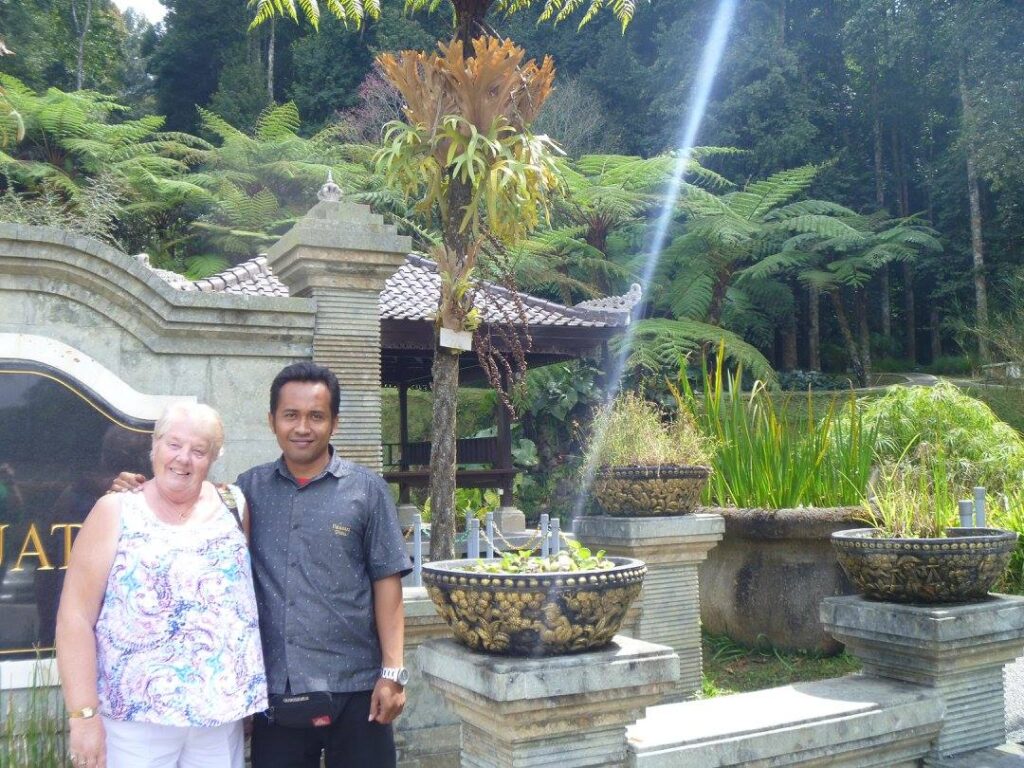
- Some cities around the world don’t have legitimate taxi companies at all, like St Petersburg. They have cars driving around with a ‘taxi’ sign on top, however none of them are legitimate and some of the drivers are dangerous. If this is the case where you are going (remember, time spent in reconnaissance is seldom wasted), you can ask your hotel or hostel to book you a taxi and get their contact details for the return trip or arrange a pick up time and location. Accommodation providers often work with a group of trusted drivers with which their clients will be safe.
- Book a transfer. When arriving in a new destination, book a transfer with a legitimate company. When you arrive in places like Bali, India, Egypt, Morocco, Nairobi….and even Melbourne nowadays, you will be confronted with hundreds (maybe not hundreds in Melbourne but this still happens) of taxi touts. These people will often not just rip you off. I’ve had them approach me in Cairo to tell me my hotel is completely booked out and they are here to book me a new one – they then take you to another hotel where they get a commission. I’ve also heard terrifying stories from both Russia (St Petersburg) and Chile where criminals involved in organised crime masquerade as taxi drivers at airports and kidnap unsuspecting tourists forcing their families to pay a fortune to get them back. Trust me. Just book a transfer, even if you book nothing else.
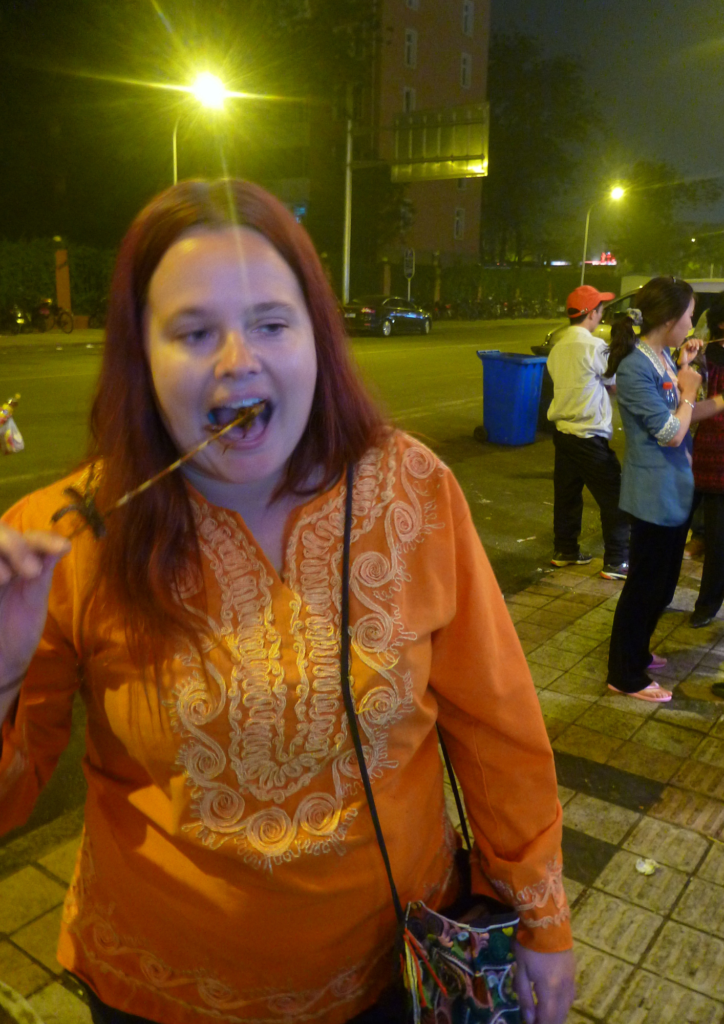

Food Safety
When we talk about travel safety, we’re often thinking about dangers than come from our interactions with other people. But what about the tiniest organisms that could absolutely ruin your trip? I have a separate blog on Eating Safe, but I’ll offer a few tips here:
- I’m not one of these people who is going to tell you to avoid street food. If you’re on a budget, street food is a good way to save some money and it’s often the best food in the city. It’s not necessarily the place you’re going to get a tummy bug either, the worst food poisoning I’ve ever had, came from a nice restaurant in Bukhara, Uzbekistan and the second worst came from a dinner cruise in Cambodia. The two top tips I have for street food are, don’t eat anything that looks like it’s been sitting around and eat at places where there is a line. Both of these tips ensure the food is fresh and very tasty. If there’s a line, it must be good right?
- If it doesn’t taste right don’t eat it. Don’t worry about offending people just don’t eat it. I got the aforementioned food poisoning in Uzbekistan because I thought it was just the local recipe that made the chicken taste funny. By midnight I could barely stand.
- Retrace your steps. This tip is more about finding out the culprit if you actually do get sick, so you can avoid the place like the plague moving forward. If you’re sick, where were you six hours ago? What were you eating? That’s usually the culprit.
- The kebab was innocent. Getting a tummy bug isn’t always the result of the food. Sometimes it’s the money which in some cases is filthy. I actually picked this tip up on Central Asia and took it with me to Egypt. Five visits to Egypt and five visits getting sick and blaming the food (the second time I actually had to leave the country I was so sick). Visit six, made sure I used hand sanitizer every time I handled the money. I was completely fine.
- A good preventative measure is to take a pro-biotic which helps balance the amount of good and bad bacteria in your stomach and gut, this can help you fight off or even prevent a tummy bug.
- Where’s the beef? Another common misconception is that red meat is the most common place travellers get food poisoning. This isn’t true at all, you’re far more likely to contract serious food poisoning from chicken or seafood.
- Where’s the fish? No seriously, where is the nearest source of fish? If you’re in a town on the ocean the fish is probably very fresh and a great pick. If you’re in a landlock country like Mongolia or Uzbekistan fish would be the last thing I would be ordering unless its freshwater and caught from a local lake.
Some travel safety advice doesn’t always translate
This means, that just because things are one way in one destination, doesn’t mean they are that way in another.
- This is true in Islamic countries. Iran and Turkey are as different as night and day. In Iran women must cover up almost completely or face jail time, in Turkey you will see local women walking down the street in Istanbul in a mini skirt. Just because you’ve been to one Islamic country, don’t assume the next one you go to will be exactly the same
- Don’t go out at night. You would think night time would be the most dangerous time for exploring anywhere you go. In fact, this isn’t true. Many cities around the world really come to life at night, especially those with a hot climate when it might be too hot to go out during the day. This is especially true of places like Cairo, where the streets in downtown are actually teeming with local women who come out to do their shopping or go out with their families at night. I know as a women travelling in Egypt alone, that this is when I felt most safe.
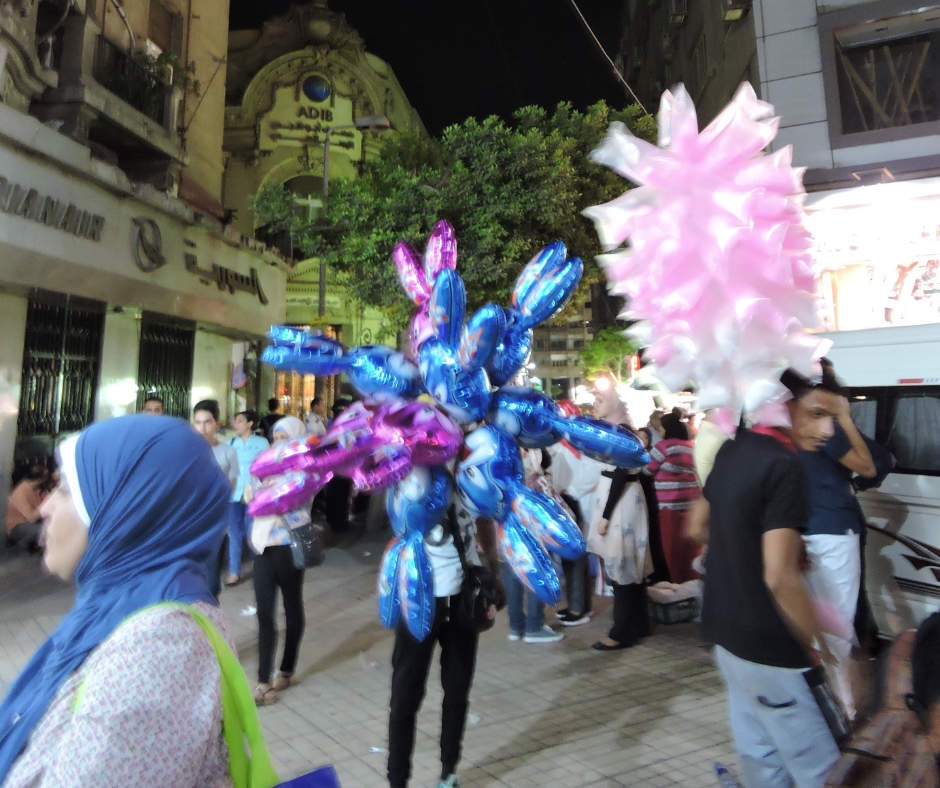

General travel safety misconceptions
Developing countries are unsafe. Couldn’t be more wrong. I’ve only been a victim of theft twice. Once was a ratty old pair of sunglasses which were stollen off my head while in Ethiopia (actually, my sunglasses and hat were snatched, but the hat came flying back in the truck window, they only wanted the sunglasses and returned the hat!) and the other was having my iPhone stolen while I was working as a tour leader in Paris. Guess which one was more distressing? On my overland trip from Cape Town to Cairo, which lasted 4 months and travelled through South Africa, Namibia, Botswana, Zambia, Malawi, Tanzania, Kenya, Ethiopia, Sudan and Egypt only two of us had anything stollen. Interestingly both sunglasses. When people moved onto Europe I heard all sorts of reports of people having things stollen, passports, money, muggings, and then there was me who stayed in Egypt for five weeks and headed across to Libya overland, who had nothing stollen. Go figure.
Hold all wallets. I know. I know. I’ve already mentioned it, but I feel so strongly about it I’m going to mention it again! They are a VERY BAD IDEA! Anything that involves putting all your eggs in one basket is a bad idea in regard to safety. If you lose your amazing hold all travel wallet, you lose everything. Imagine losing your passport, wallet, phone, cash and credit cards all at once. Yeah, nah. Hard pass.
- Restaurant Seating. Avoid sitting in the seat nearest the door in fast food places in developing countries (and I acknowledge that this is more sad than dangerous.) Sitting near the door makes you a target for the local kids to run in, steal your food and run out. This happened to me in Ulaanbaatar, Mongolia and I was completely stunned. The owner of the KFC came over before I could react, apologised profusely (not his fault obviously) and gave me a new meal on the house. While it was only food, and yes they were hungry kids it could have been worse. If I’d had my phone or wallet on the table they could have stolen that or god forbit they weren’t kids and it was am armed hold up (let’s face it, this is just as likely to happen in the states as it would in the developing world, maybe more so).
- Avoid local people, you will get scammed. While I can’t deny that in some countries around the world, locals often target travellers for the purpose of scamming them, don’t fall into the trap of becoming so wary that you don’t make any local mates. In my experience, these people are few and far between, but unfortunately they come out of the woodwork more freely than genuine people because you’re their target. I’ve made some great friends all over the world and if that meant I fell victim to a couple of scams because I was a bit more open so be it. I’ll give you the same advice I gave my Mum when she was attacked by an aggressive man at the Pyramids (my Mum’s number one bucket list item) who was demanding backsheesh in such an aggressive way it made her cry – Every country has its assholes, don’t let one bad person spoil your experience. Sage, no?
Hopefully, this blog has been helpful and given some insight how you can take care of your own travel safety while on the road. With all of this in mind, it is obviously still impossible to mitigate all circumstances. You can’t prepare for any eventuality. In the words of my favourite anti-hero Joe Blake, from my favorited movie Bandits. “Expect the unexpected? Sounds like good advice. But that then leaves you open to the truly unexpected.”
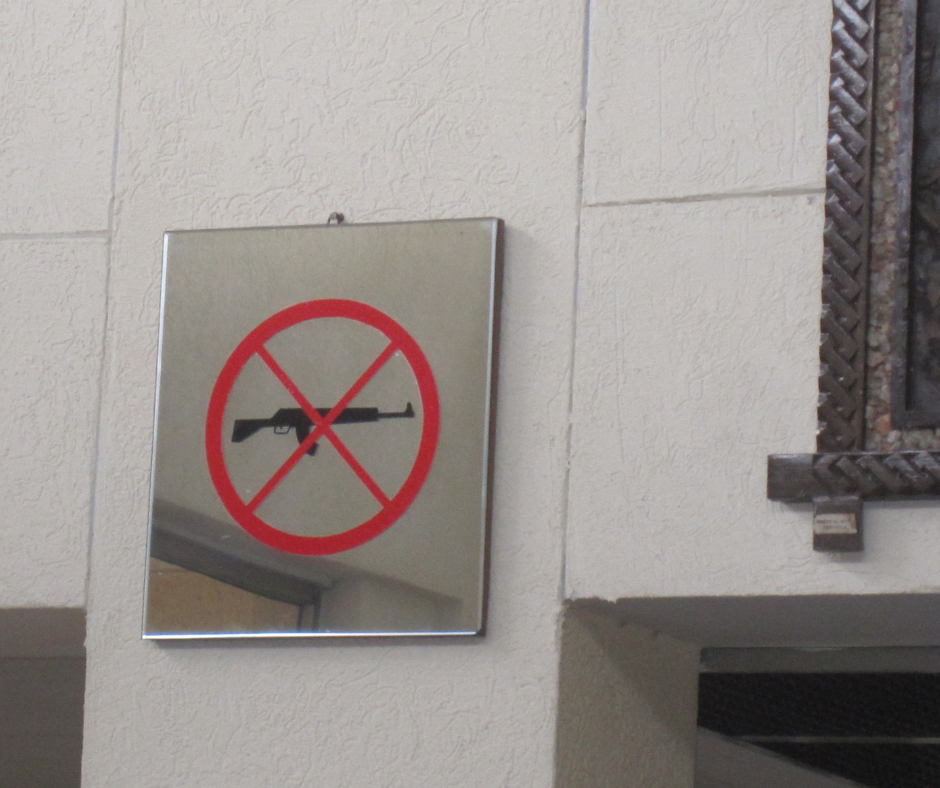
In other words, you can take all the care in the world and still end up jumping out of a moving vehicle at gun point in Nairobi or forced to smuggle large amounts of cash across one of the most dangerous borders in Africa for a payment of twenty-five US dollars by a dodgy tour company. You just have to accept that sometimes these things are part of travelling and hey, at least they make a good story!


